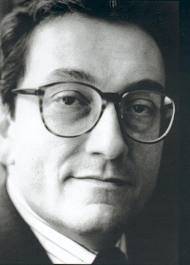Academic Censorship and Self-Censorship in Germany

Students at the University of Siegen, Germany
“This is a subject that is very difficult for academics to discuss. In fact, I think academics steer way clear of this subject. I found in writing stories about the human genome, anything that touched on race, for example, just petrified the academics I would speak to. I thought it was very sad, that we would have intimidation in this country. So I thought there was an opportunity, maybe a duty to write this book and to break the ice and try to discuss some of these issues.”
Nicholas Wade in a discussion of his book, A Troublesome Inheritance in response to a question from Jason Richwine: “How confident were you that writing this book would not result in the loss of your livelihood?”
Sometimes bad news from the System can turn out to be good news for advocates of free speech. Especially when the System implicitly admits of having to backpedal on its own self-proclaimed canons of free speech, reject is its own much-lauded free academic inquiry, and resort instead to censorship and gagging orders. This was recently the case when I had been invited to give a lecture at the University of Siegen in Germany on the topic of the Der Untergang des Abendlandes, (“The Decline of the West).”
The invitation, as was to be expected, was promptly cancelled by the University Board of Directors. On May 13, 2014, the cancellation of the event was reported by the influential mainstream German daily Westdeutsche Allgemeine Zeitung (WAZ). Professor Jürgen Bellers, who had sent an invitation, is an old colleague of mine, a former visiting professor at Juniata College in Pennsylvania, where I taught in the early ‘90s as a full-time professor of political science. Read more

 In the egalitarian world of academia the deeds of great European men stand like an irritating thorn. Allowing university students (the majority of whom are now females) to learn that practically every great philosopher, scientist, architect, composer, or simply, everyone great, has been a male makes them uncomfortable. Academics feel even less comfortable, terrified even, at the thought of teaching their increasingly multiracial classrooms that these males are overwhelmingly European. While universities cannot ignore altogether the cultural achievements of Europeans, otherwise they would have little to teach — all the disciplines, after all, were created by Europeans — the emphasis tends to be on the evolution of “progressive” ideas framed as if they were universal ideals by and for humanity. Egalitarians particularly enjoy teaching how these ideas have been improved upon, and continue to be, through the “critical thinking” of teachers and activists. Hail to the professors fighting for humanity’s liberation right inside their classrooms!
In the egalitarian world of academia the deeds of great European men stand like an irritating thorn. Allowing university students (the majority of whom are now females) to learn that practically every great philosopher, scientist, architect, composer, or simply, everyone great, has been a male makes them uncomfortable. Academics feel even less comfortable, terrified even, at the thought of teaching their increasingly multiracial classrooms that these males are overwhelmingly European. While universities cannot ignore altogether the cultural achievements of Europeans, otherwise they would have little to teach — all the disciplines, after all, were created by Europeans — the emphasis tends to be on the evolution of “progressive” ideas framed as if they were universal ideals by and for humanity. Egalitarians particularly enjoy teaching how these ideas have been improved upon, and continue to be, through the “critical thinking” of teachers and activists. Hail to the professors fighting for humanity’s liberation right inside their classrooms!


